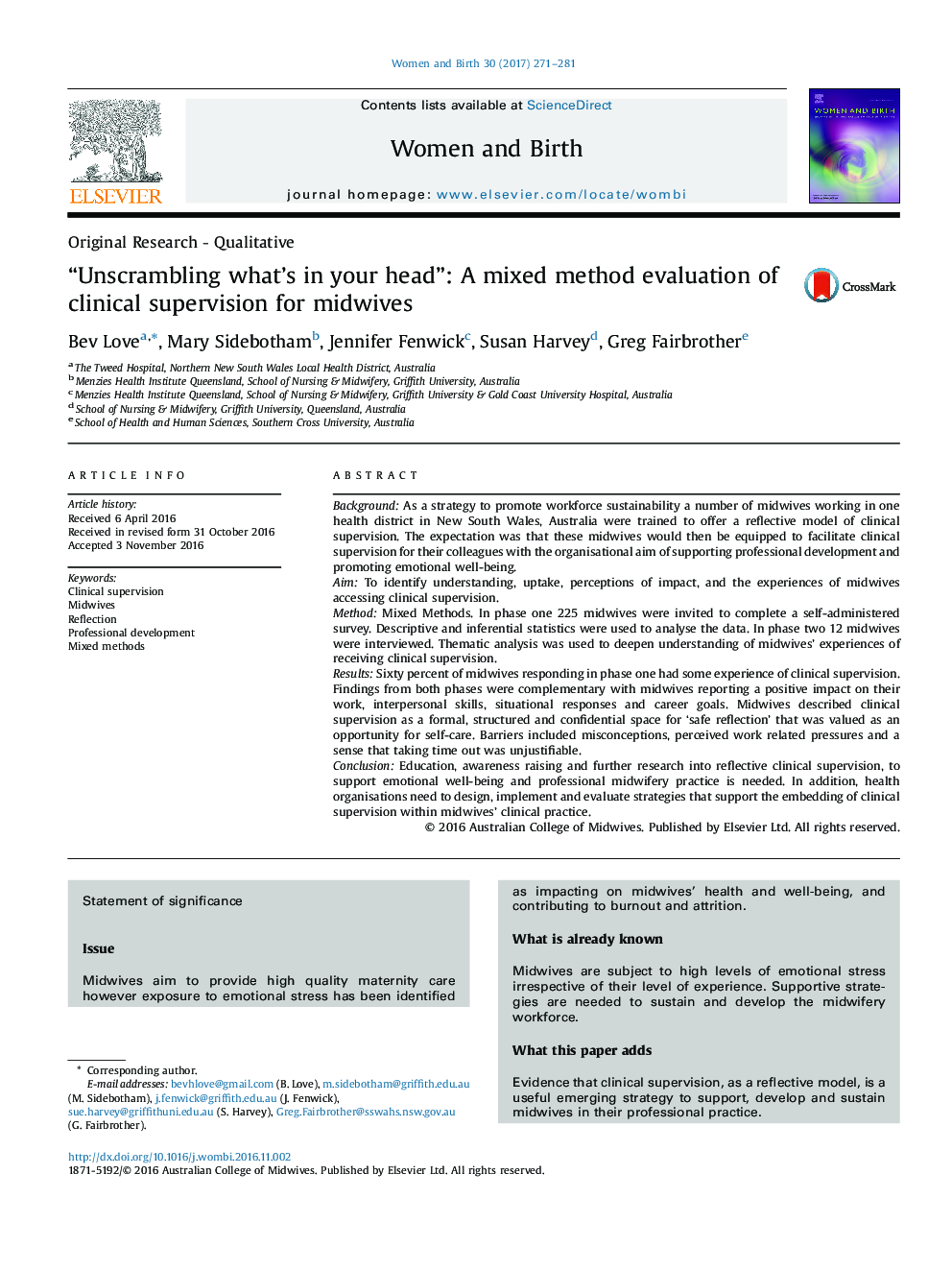| Article ID | Journal | Published Year | Pages | File Type |
|---|---|---|---|---|
| 5566032 | Women and Birth | 2017 | 11 Pages |
BackgroundAs a strategy to promote workforce sustainability a number of midwives working in one health district in New South Wales, Australia were trained to offer a reflective model of clinical supervision. The expectation was that these midwives would then be equipped to facilitate clinical supervision for their colleagues with the organisational aim of supporting professional development and promoting emotional well-being.AimTo identify understanding, uptake, perceptions of impact, and the experiences of midwives accessing clinical supervision.MethodMixed Methods. In phase one 225 midwives were invited to complete a self-administered survey. Descriptive and inferential statistics were used to analyse the data. In phase two 12 midwives were interviewed. Thematic analysis was used to deepen understanding of midwives' experiences of receiving clinical supervision.ResultsSixty percent of midwives responding in phase one had some experience of clinical supervision. Findings from both phases were complementary with midwives reporting a positive impact on their work, interpersonal skills, situational responses and career goals. Midwives described clinical supervision as a formal, structured and confidential space for 'safe reflection' that was valued as an opportunity for self-care. Barriers included misconceptions, perceived work related pressures and a sense that taking time out was unjustifiable.ConclusionEducation, awareness raising and further research into reflective clinical supervision, to support emotional well-being and professional midwifery practice is needed. In addition, health organisations need to design, implement and evaluate strategies that support the embedding of clinical supervision within midwives' clinical practice.
